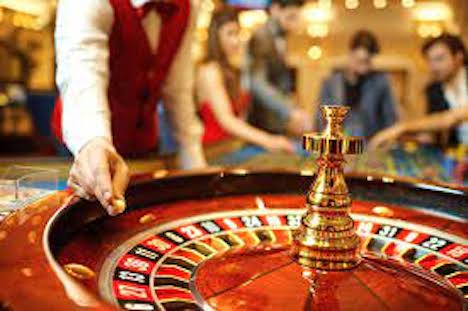
Operation Inspiration
Let me start by saying I’m not a gambler. Sure, when the Powerball or MegaMillions jackpots creep up and the lure of instant “richer than I ever dreamed” for just a buck or two calls, I may buy a ticket, but I get absolutely no thrill from going to a casino. I know that the odds are against me making it out with more money than I went in with, and it’s not worth the risk.
However, there must be some people who enjoy it because there are advertisements all around for casinos, even billboards in New Jersey proclaiming that you can bet online with real money, and wherever you go that it’s legal, you’ll see casinos popping up even in areas where people don’t have money to lose.
I was in the bank one day and a man was taking out $5,000. No, he wasn’t making a chasuna. He was going to a casino on a Friday night (BH, he was not a Jewish fellow.) He casually joked with the bank teller that hopefully he’d come back to deposit more than he was taking out. We all doubted he would.
So, what is the allure of betting? Why do people go to these places where there’s a 95% or greater chance that they’ll lose whatever they’re betting? Simply put, the answer is the dream of getting something for nothing.
It’s the hope that one roll of the dice or flop of the cards will make them a winner. Sure, some people will claim they have skills or strategy, and in some games that works. But still, there’s a lot of risk. But you know what? They make it so attractive to bet!
Casinos boast lavish, extravagant hotels where they offer all sorts of luxurious items and experiences for their high rollers. These are the people who come and “play” and think nothing of dropping tens of thousands of dollars. They get “comps,” which are freebies such as suites and steak dinners that make them feel like they’re getting something for nothing, furthering the drive to gamble and be “winners.” How can they afford this? It’s easy when most people who gamble end up losing.
When you bet, you’re willing to give up something of value for the chance to get something else of greater value. I’ll put those chips on 50 Black on the roulette wheel because if it comes up, I’ll get a lot more of those chips. But if it doesn’t, then what you had, you lost.
That’s what happens when you gamble money. Can you imagine how much more significant the risk is when you’re gambling something more valuable?
Whatever you do in life, however you spend your time, you are trading the most precious commodity in the world for it – time. Unlike a bank account which has a balance so you know how much money you have, life doesn’t let you know how much time you have left. We may imagine we’ll live a long, healthy, prosperous life, but there’s no guarantee and no way to know how much longer we’ve got. We may already be living on borrowed time.
The Yetzer Hara is like the casino. He presents a flashy, exciting world of chances to experience luxury and thrills, but instead of dollars, pounds of rubles, or maybe, along with them, he makes you pay in minutes, hours and days.
He holds out the possibility of something for nothing, but really, he wants you to trade something for nothing.
He makes it seem like you’re getting value for your money with freebies and fancy artwork, but in reality, he’s working to make you impoverished. Whatever you’ve worked hard for, he wants you to lose. The only hope you have is to focus on the house odds.
The house odds are a measure of how much the deck is stacked against you. In some games of chance it can be 99 to 1. Some games offer better odds, and the casino only wins maybe 85 or 90 percent of the time. If you must gamble, then, it behooves you to choose a game with lower odds.
Well, the same works in life. If you spend your time involved in making money or chasing toys like cars and houses, you’re not likely to “win.” If you instead choose things like chesed and Torah and davening, then the time you’ve invested will earn you a much higher return, one that is guaranteed.
Working a job for pay may be tedious, but it’s a surer path to income than risky ventures like lotteries and slot machines. You may not feel that rush of adrenaline and the glimmer of glamour that the gambler gets, but you want more than he ends up with. Sure, some people are professional gamblers and it pays off. There have to be, or the Yetzer Hara would never be able to convince people to trade their valuables for dreams that may never come to fruition.
Chazal tell us “The wise man will choose mitzvos,” which is because he understands the true value of things. The bottom line for us all, then, is that whatever you’re pursuing, make sure you know the odds and the payouts. Because, regardless of whether you use points, tokens, or currency, when you trade what you have for what you want, you’re really betting your life.
© 2021 – All Rights Reserved
Did you enjoy this column? Feedback is welcome and appreciated. E-mail info@JewishSpeechWriter.com to share your thoughts. You never know when you may be the lamp that enlightens someone else.